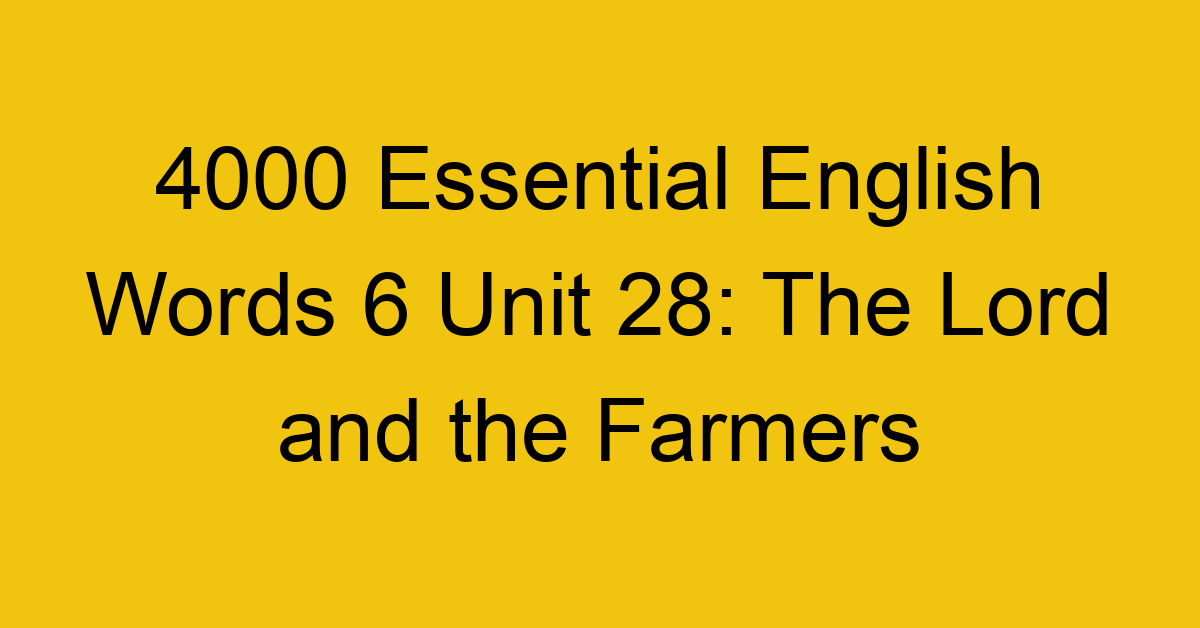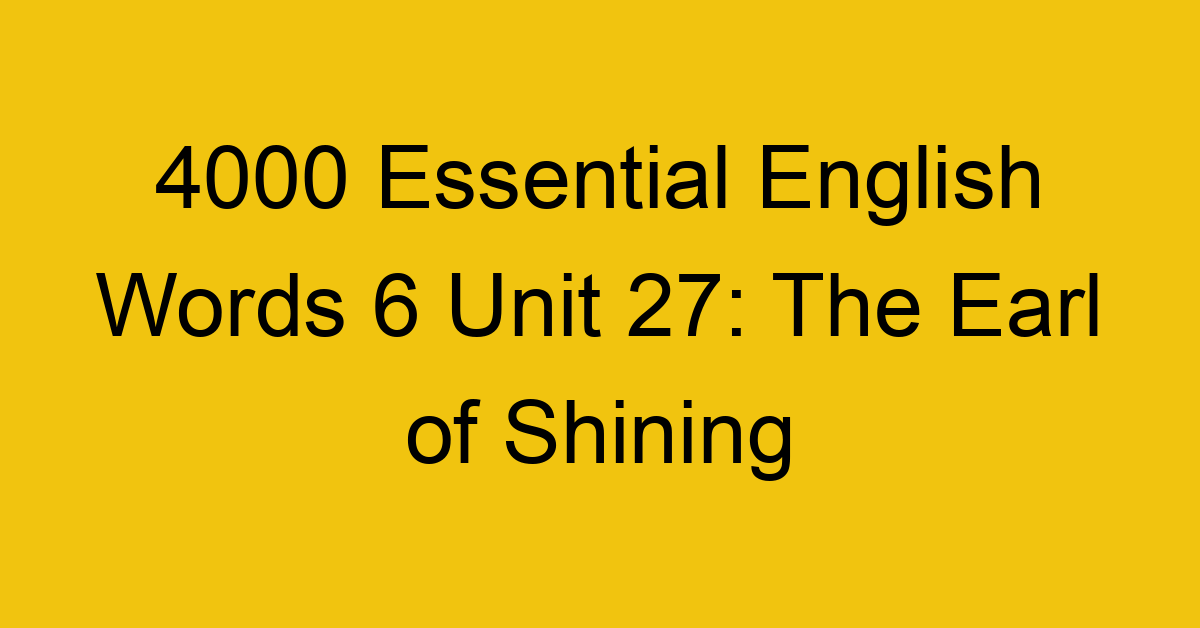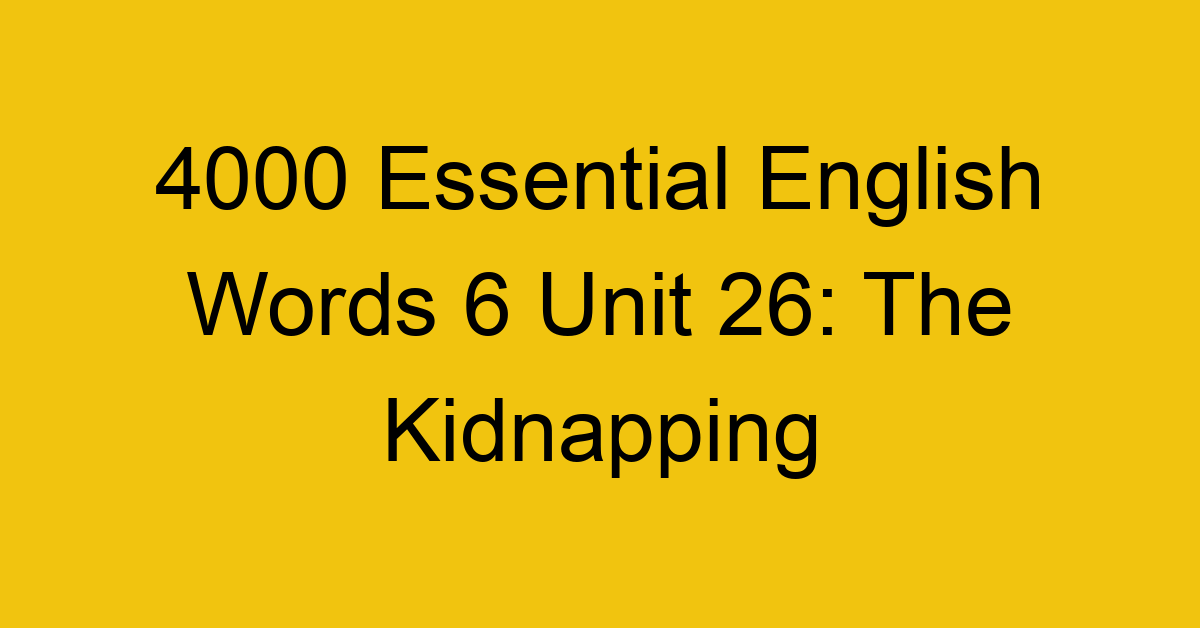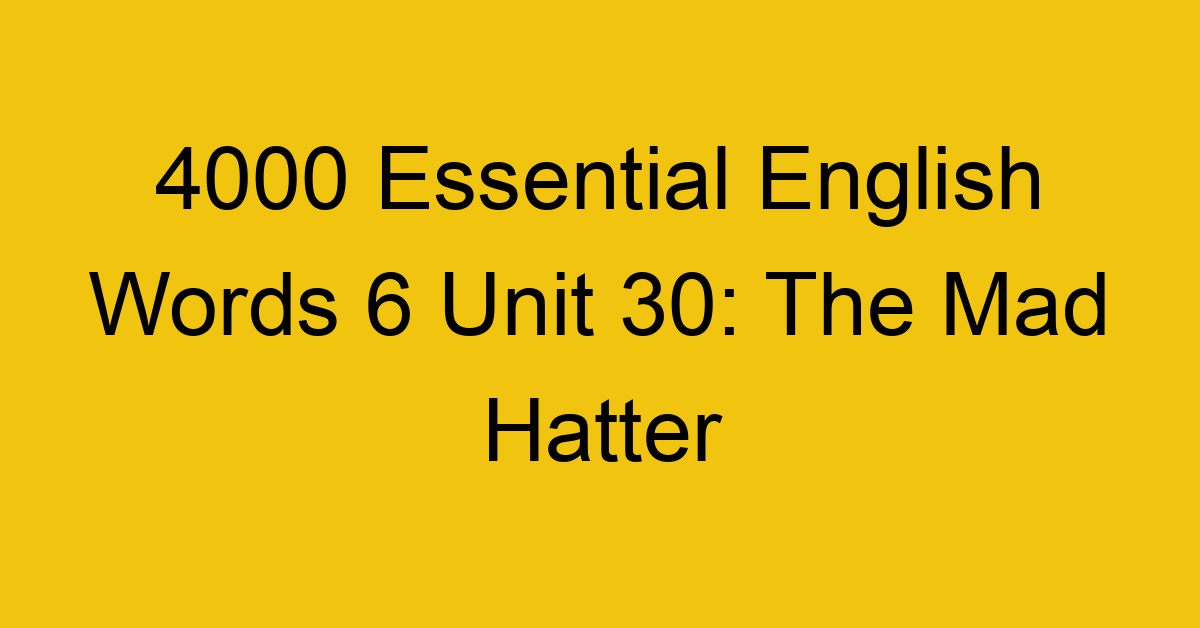4000 Essential English Words 6 Unit 29: The Shortcut
Word List
- analogous [əˈnæləgəs] adj.
If something is analogous to another thing, then it is like it in certain ways.
→ The relationship with his teacher was analogous to that of a son and mother.
- binoculars [bəˈnɒkjələrz] n.
Binoculars are a device used for seeing things that are far away.
→ He could see the ship on the horizon only if he used his binoculars.
- bulk [bʌlk] n.
The bulk of something is its great size.
→ The large elephant moved its bulk with legs as strong as tree trunks.
- comprise [kəmˈpraiz] v.
If something comprises something else, it consists of or is made up of it.
→ Our school’s football team is mostly comprised with seniors.
- depict [diˈpikt] v.
To depict something means to show or portray it, often using art.
→ The statue’s face depicted the general’s determination and courage.
- dual [ˈdju:əl] adj.
If something is dual, then it is made up of two parts.
→ The room had a dual function. It was a living room, but at night it was a bedroom.
- Fahrenheit [ˈfærənhait] n.
Fahrenheit temperature is a scale where water freezes at 32° and boils at 212°.
→ When the temperature dropped to 32° Fahrenheit, it started snowing.
- fulfill [fulˈfil] v.
To fulfill something means to achieve or finish it.
→ The professor did not fulfill his promise not to miss a single class.
- grove [grouv] n.
A grove is a small group of trees.
→ All the trees in this grove are apple trees.
- ore [ɔːr] n.
Ore is the raw form of rock or material from which a valuable metal is taken.
→ The factory melted the ore and used it to make iron products.
- outback [ˈautbæk] n.
The outback is the wild inland region of Australia where very few people live.
→ Many Australian farmers use the outback to raise cattle.
- outweigh [autˈwei] v.
To outweigh something means to exceed it in value, amount, or importance.
→ Finding a warm place to sleep outweighed the need to find something to eat.
- paradox [ˈpærədɒks] n.
A paradox is a true statement or real event that seems illogical.
→ The paradox of her work was that the less she worked, the more she got done.
- pier [piər] n.
A pier is a structure that extends into a body of water.
→ If you want to catch bigger fish, then go to the far end of the pier.
- shortcut [ˈʃɔːrtkʌt] n.
A shortcut is a route that is shorter than the main route.
→ We got to the house first because we took a shortcut through the forest.
- tariff [ˈtærif] n.
A tariff is a tax or fee paid on certain imports or exports.
→ Our tariff on imported wool makes foreign wool more expensive.
- thermometer [θə:rˈmɒmitə:r] n.
A thermometer is a device that measures temperature.
→ The thermometer outside the window indicated that it was a hot day today.
- tilt [tilt] v.
To tilt something means to tip it into a sloping position.
→ She tilted her glass and almost spilled some of the wine inside.
- vice versa [ˈvaisiˈvəːrsə] adv.
If a statement is vice versa, then its two main ideas are switched with one another.
→ Students learn from their teachers, and vice versa.
- whereabouts [ˌhwɛərəˈbauts] n.
The whereabouts of someone or something is the place where they are.
→ The police looked for the lost dog, but its whereabouts were still unknown.




